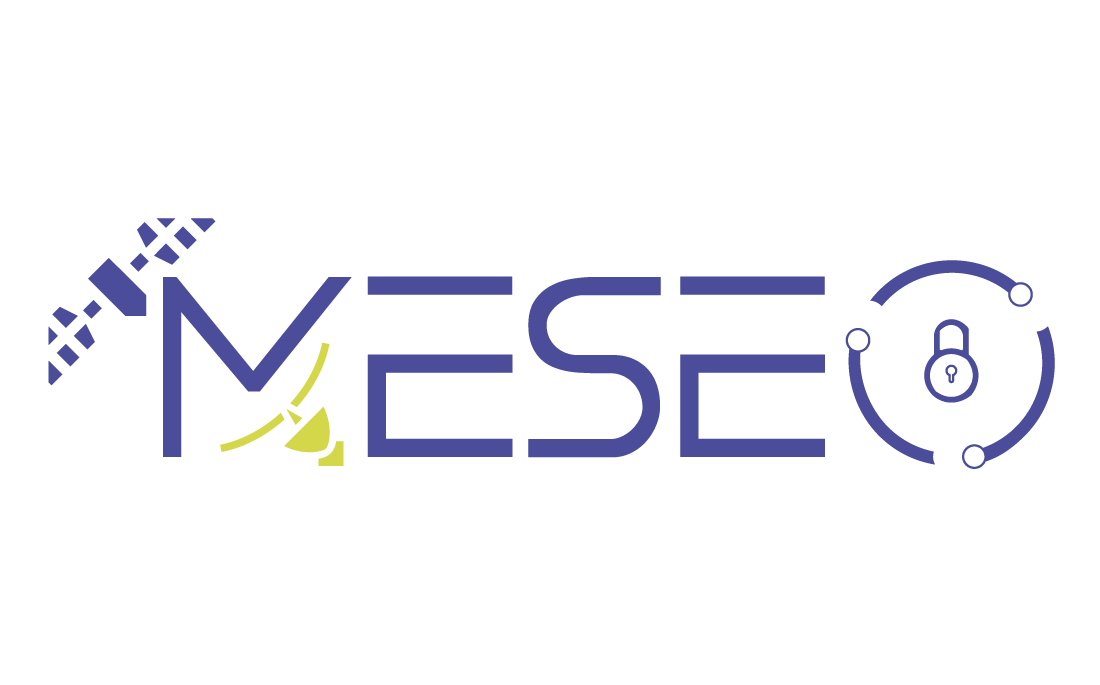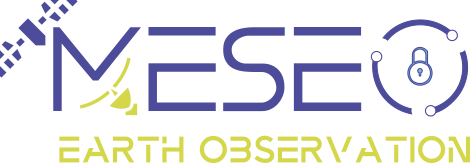
MESEO – Management, Technical Coordination and System Engineering
GMV, as the coordinator of the MESEO (Multi-mission Efficient and Secure High-capacity End-to-end Earth Observation) project, has managed all project activities, including technical, programmatic, and quality issues, as well as contractual and ethical aspects such as data privacy protection. Throughout the project period, GMV has ensured that the objectives were met within budget, on schedule, and within scope, while effectively managing the interface between the European Commission (EC) and partners.
Additionally, as the lead partner for Work Package 4 (WP4) System Engineering activities in the MESEO project, GMV has prepared two key deliverables, D4.1 and D4.2. These documents are part of WP4’s efforts to analyse the performance of legacy satellite systems and propose a new concept to address emerging needs in the Earth Observation field, focusing on advanced processing capabilities such as On-Board and Distributed On-Ground processing. We consider these deliverables to be core technical documents, as they define the fundamental design principles for the entire MESEO system.
D4.1 title is Detailed Analysis of Satellite System Performance and its purpose is to identify the main bottlenecks and performance issues associated with current Earth Observation Satellite Systems in the process involved since a user makes a request to get an EO image product until the product is finally delivered to the user. Multiple elements and services which are part of different interconnected systems take part in the process and we refer to them as the End to End processing chain.
Also, the second main objective of D4.1 is to propose the set of user requirements addressing what MESEO stakeholders needs from MESEO, to be used as input for the specification of MESEO system. GMV has executed several well-known engineering practices (stakeholders identification, system context and ecosystem map, use cases identification) used to elicit, analyze, document, and manage requirements before beginning the system design. These engineering practices has allowed also to use a common language between all MESEO partners, which is very important before addressing all the different WPs design activities.
D4.2 title is High Level Space System Definition and its purpose is to propose the design of the system (high level architecture) to deal with the identified bottlenecks in D4.1. The design must be based on a Function-as-a-Service approach (F-a-a-S), understanding F-a-a-S as Service Orientation architecture design principles. The first activity performed for the elaboration of D4.2 was the generation of a set of system requirements using as input D4.1 user requirements. System requirements address what MESEO system has to do. In addition to the generation of system requirements, they have been defined the set of use cases that MESEO has to support.
Not only system requirements and use cases drive the design activities. The fact that MESEO partners already has a deep knowledge and operational solutions providing some of the capabilities we demand to MESEO, means that MESEO design has to support the integration of already existing services coming from different partners products. We specailly refer to Domino-X (from AIRBUS) , Leonsegs (from GMV).
Both deliverables, D4.1 and D4.2, are classified as Sensitive, what means that cannot be published on the MESEO website. Only authorized users can access to Sensitive documentation.
- GMV
- July 4, 2024
- 2:21 pm

